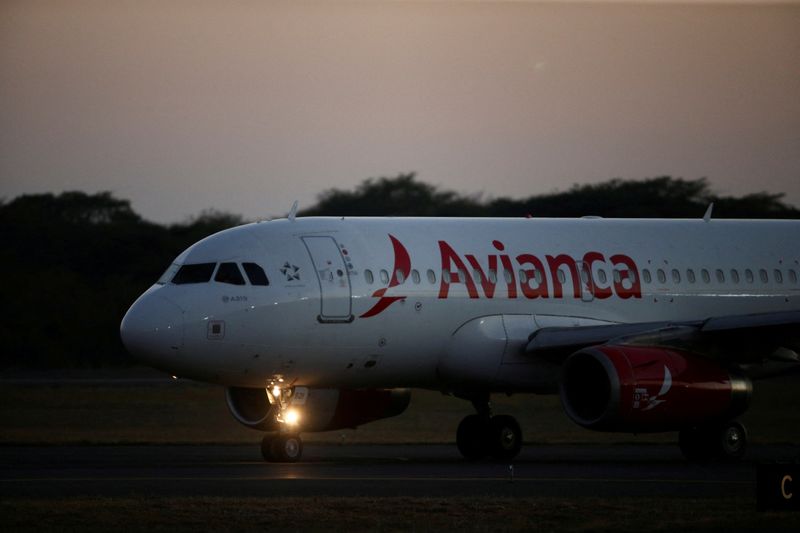BOGOTA (Reuters) - Colombian airlines Avianca and Viva have appealed to the aviation regulator after it denied their plan to merge, proposing steps to allay its concerns, such as yielding some routes to competitors, the companies said on Wednesday.
In an April agreement to merge the airlines envisaged retaining their respective brands and business strategies as the travel sector struggled with the COVID-19 pandemic.
But the governing body of Colombia's civil aviation regulator objected, saying the merger posed risks to competition and the best interests of consumers.
Plans to address these concerns include reducing operations at El Dorado airport in the capital, Bogota, maintaining Viva's brand and low-cost model, adding employees and maintaining the cost of flights on some routes, Avianca said in a statement published on Wednesday.
The airlines also expressed interest in working with state-owned Satena to boost links to Colombia's most remote regions.
Viva faces a complex financial situation after the pandemic brought a slowdown in travel, worsened this year by rising fuel prices and a weaker peso currency.
Avianca said the appeal and measures it was proposing would improve Viva's finances, yielding benefits for employees and suppliers. It said it would also seek to meet traveler demand if authorities made it impossible to boost Viva's financial health.
In May, Brazilian airline Gol Linhas Aereas Inteligentes SA and Avianca unveiled a pact to set up a Latin American air transport holding company called Grupo Abra, putting brands under the control of a single company.

Avianca, which wrapped up a bankruptcy restructuring process at the end of last year, has one of the largest operations in the region, with more than 130 aircraft and 12,000 employees.
Viva, with a fleet of 23 aircraft, has about 1,000 direct employees.